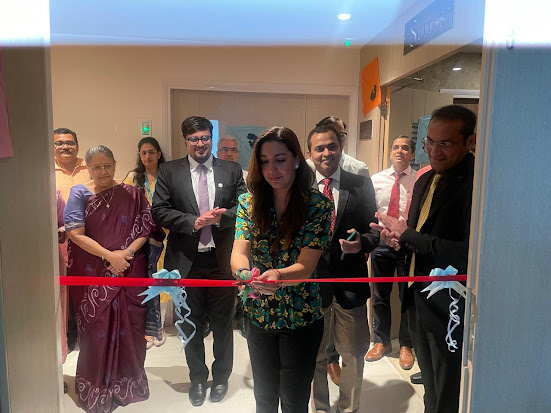TechInvention
Lifecare Pvt. Ltd. (TechInvention) has announced a strategic collaboration with
Belgium-based Quantoom Biosciences (Quantoom). The Memorandum of Understanding
(MoU) was formally signed during the Belgian Economic Mission to India recently
in the presence of Her Royal Highness Princess Astrid of Belgium, industry
leaders and key stakeholders from both nations.
As
part of this collaboration, TechInvention is introducing Quantoom’s
cutting-edge RNA manufacturing solutions—to India with a strong focus on
accessibility, scalability, and affordability. This advanced suite of
technologies is designed to de-risk and accelerate the development of RNA-based
vaccines. Complementing this, TechInvention will leverage its translational
research expertise, regulatory know-how, and GMP manufacturing capabilities to
streamline developing, scaling, and commercialising novel RNA-based products.
This partnership represents a transformative milestone in India’s biotechnology
landscape, establishing end-to-end mRNA production capabilities at
TechInvention’s forthcoming EU-GMP-approved facility, the Global Collaborative
Centre for Medical Countermeasures (GCMC), in Mumbai.
With
a One Health approach, this collaboration extends beyond human health to
encompass animal and environmental health. The technology is designed for
environmental sustainability, integrating modular, low-carbon-footprint mRNA
systems that support global decarbonization efforts. It aligns with worldwide
initiatives to enable access to next-generation RNA technologies, ensuring that
low- and middle-income countries (LMICs) benefit from locally manufactured,
cost-effective, and scalable solutions.
José
Castillo, CEO, Quantoom Biosciences, added, "At Quantoom, our mission is
to enable our partners to accelerate their m(sa)RNA-based vaccines development,
thanks to our end-to-end N-Force Toolbox. We think that our technology will, by
design, make RNA products accessible and scalable globally. Partnering with
TechInvention in India is a vital step toward achieving this goal, into the
most populated country in the world, and we look forward to enabling
groundbreaking developments in the field of RNA-based medicines."
Syed
Ahmed, Director & CEO, TechInvention, commented, "We are excited to
bring Quantoom’s cutting-edge mRNA technology to India, revolutionizing RNA
drugs development and manufacturing. This partnership is a significant step
toward strengthening India’s preparedness for future pandemics while ensuring
broader access to RNA-based innovations across LMICs."
This
collaboration positions India as a hub for next-gen RNA-based vaccines, driving
global partnerships for equitable healthcare.












